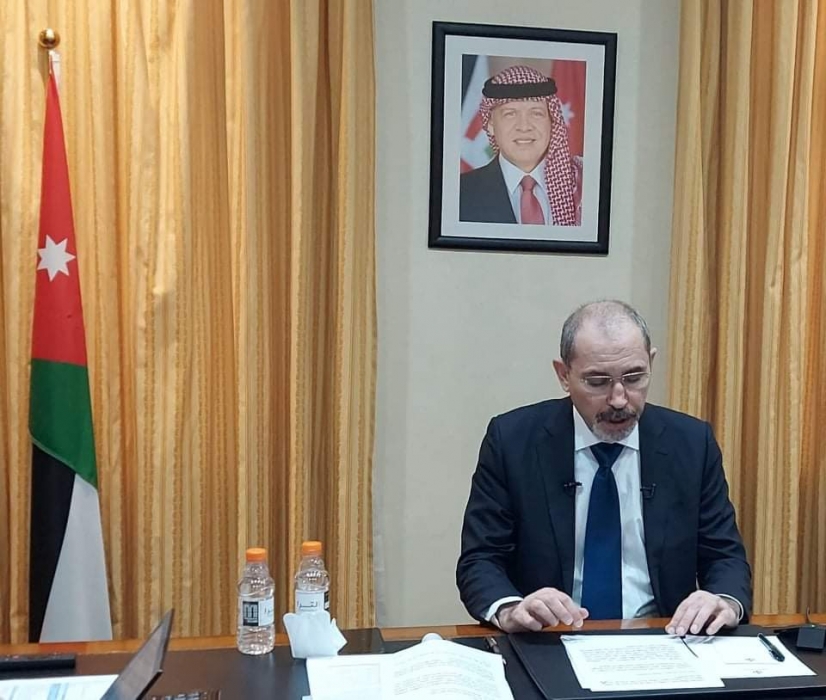- Local News
- Tue-2021-03-30 | 08:31 pm

Nayrouz News Agency :
At the Brussels V Conference:
"Supporting the Future of Syria and the Region”
Your Excellencies,,
Dear Friends,,
Dear Josep [HRVP Josep Borrell]
Dear Mark [USG Mark Lowcock]
More than 500 thousand people killed. More than 6.7 million people pushed into refugee camps in foreign lands, 13 million men, women and children are in need of humanitarian aid, 12 million are food insecure. Over 80 percent of Syrians live under poverty line.
2.5 million children are not going to schools. 5 million children born into war, and one million born as a refugee in neighboring countries. Livelihoods destroyed, dreams shattered, generations lost.
This is the horrific outcome of 10 years of the Syrian crisis.
And the dangerous reality is that 10 years into the crisis, there is no end in sight. There is no real strategy to stop the devastation.
This, dear friends, cannot and should not continue.
Genuine, collective and immediate efforts to realise a political solution that recognizes that the Syrian people are the top priority must begin, and begin in earnest.
Security Council Resolution 2254 sets clear parameters for a political settlement that would end this crisis. That solution may seem like a distant objective. But we must start with steady, even humble, steps that would seek to lessen the suffering of the Syrian people, end the fear, build schools, provide healthcare, and restore hope on the path towards a complete end to the conflict.
Ultimately, the solution that will ensure peace is the one that Syrians will accept —a solution that will preserve Syria’s unity, deliver an enduring defeat of terrorism, lead to the departure of foreign forces, and create conditions conducive to the voluntary return of refugees.
But until that happens, the refugees of the Syrian crisis must not be forgotten. Nor should the countries that host them be left to face the challenge alone. Unfortunately, in this regard, the current trajectory is alarming. Less and less support is available. UN organisations are not receiving the funds they need. Host countries are not getting anywhere near the sufficient assistance required to continue to meet this burden.
My friends,
My country is host to about 1.3 million Syrians. Only 10 percent of them live in refugee camps. The rest are spread across Jordan. Of the roughly 200 thousand school-aged refugees, 144 thousand are receiving formal education. We provide refugees with the same medical services and care we offer our citizens. Indeed, Jordan was the first country in the world to offer COVID-19 vaccines to refugees, in spite of the very limited supply.
We do everything we can to give refugees the chance to live dignified lives because it is the right thing to do, because this is who Jordanians are.
But as we grapple with the terrible impact of COVID on our people, their livelihoods and our economy, we are seeing less support coming to us, and to UN organisations that have been crucial partners over the past decade.
We recognise the unprecedented burden that the pandemic has placed on our friends and partners. But the ongoing challenges of the Syrian crisis have only deepened over the past year. Now is not the time to forget about those who so desperately need our help. The continued sharing of this responsibility must be real and it must be comprehensive.
We have just announced in Jordan our response plan for the year 2021, the plan details requirements for meeting refugees needs, we do hope it will receive your support.
My Friends,
Immediate measures must be taken to ensure sufficient support for refugees. More funds must be made available, and must reflect the changing needs of refugees. Emergency relief is no longer the top priority.









